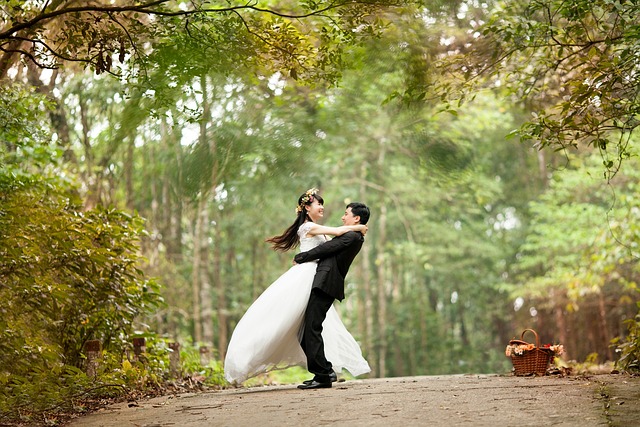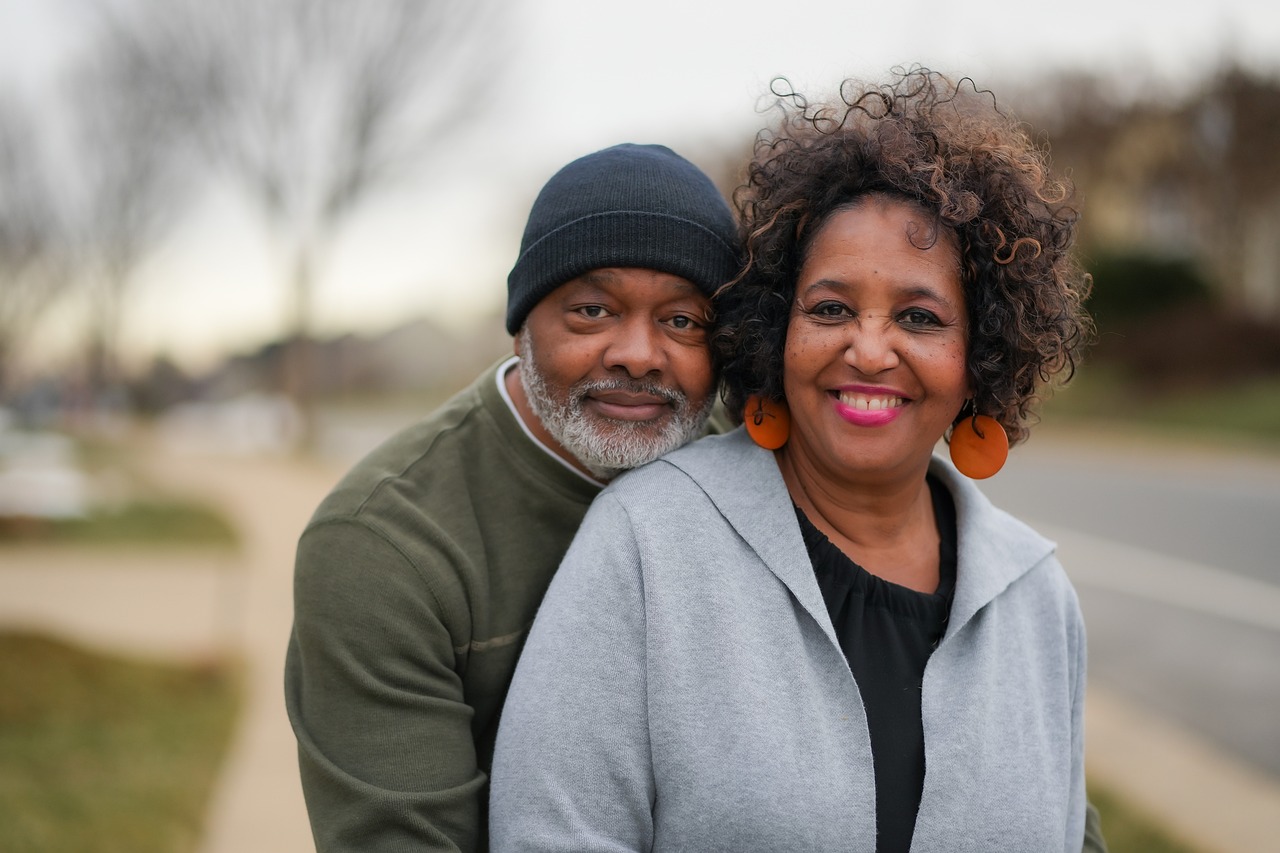From Casual to Committed: Understanding the Dating Spectrum
The Different Stages of Dating: Unraveling the Complexity
Dating can be an exciting and exhilarating experience, but it can also be quite complex. As we embark on this journey, we often find ourselves navigating through different stages, each with its own set of challenges and uncertainties. From the initial meeting to the early stages of getting to know each other, the process of dating can feel like an intricate puzzle waiting to be solved.
In the beginning, there is often a sense of curiosity and intrigue. We may find ourselves drawn to someone and wanting to explore a potential connection. This stage is characterized by casual conversations and light-hearted flirtations. It’s a time when we are trying to figure out if there is any chemistry and compatibility between us. As we learn more about each other, we start to discover common interests and shared values, building the foundation for a potential relationship. However, with each passing stage, the complexity of dating unfolds, bringing both excitement and uncertainty along the way.
Navigating the Grey Area: What Does Casual Dating Really Mean?
Casual dating is a term that has become increasingly popular in today’s dating scene, but what does it really mean? Essentially, casual dating refers to a relationship dynamic where individuals are not exclusively committed to each other. It is a gray area that falls somewhere between a fully committed relationship and simply being friends with benefits. In these situations, both parties involved are aware that they are not in a serious, long-term commitment but are still engaging in romantic or sexual interactions.
For some, casual dating is a way to enjoy the company of different people without the pressure of a committed relationship. It allows individuals to explore their options and experience different connections without feeling tied down to one person. It can be a fun and exciting time to meet new people, go on dates, and enjoy the freedom of not being emotionally or physically attached. However, it’s important to note that casual dating can mean different things to different people, so it’s crucial to communicate openly and honestly to ensure that both individuals are on the same page.
• Casual dating is a relationship dynamic where individuals are not exclusively committed to each other.
• It falls between a fully committed relationship and being friends with benefits.
• Both parties involved are aware that they are not in a serious, long-term commitment but still engage in romantic or sexual interactions.
• It allows individuals to enjoy the company of different people without the pressure of commitment.
• It provides an opportunity to explore options and experience different connections.
• Casual dating can be fun, exciting, and liberating as it offers freedom from emotional or physical attachment.
• Communication is crucial to ensure both individuals have the same understanding of what casual dating means for them.
Setting Boundaries: Establishing Expectations in the Early Stages
Setting boundaries and establishing clear expectations in the early stages of dating can play a crucial role in setting the tone for a healthy and successful relationship. It’s important to communicate your needs, desires, and deal-breakers right from the start. By expressing what you’re comfortable with and what you’re not, you are giving your potential partner an opportunity to understand your boundaries and build trust from the beginning. These boundaries can encompass various aspects of the relationship, such as communication frequency, personal space, and emotional availability. It may seem daunting to discuss these topics early on, but it can save both parties from misunderstandings or unintentional hurt feelings later down the line.
When setting boundaries, it’s essential to remember that each individual has different needs and comfort levels. What might work for one person may not work for another. Therefore, it’s crucial to approach these conversations with an open mind and empathetic attitude. This is an opportunity for both partners to align their expectations and establish a mutual understanding of what is acceptable and respectful within the relationship. Clear and honest communication is the key to ensuring that both parties feel heard, valued, and supported. By setting boundaries in the early stages of dating, you are establishing a solid foundation for a relationship built on trust, respect, and open communication.
From Flirting to Exclusive: Signs That Things Are Progressing
Entering the realm of exclusivity is an exciting phase in any relationship. As you move from flirting to becoming an exclusive couple, there are certain signs that indicate the progress you’re making. One significant sign is when you start spending more time together, not just during special occasions or planned dates, but also during those casual moments when you simply want each other’s company. This shows that your connection is deepening, and you both genuinely enjoy each other’s presence.
Another clear sign of progress is when you begin introducing each other to your respective social circles. This step signifies that you acknowledge the importance of your partner in your life and want to share them with the people who matter to you. It’s a way of integrating your lives and demonstrating that you see a future together. Introducing your partner to your friends and family also allows you to gain insight into how well they mesh with your loved ones, and vice versa. This can provide valuable information, helping you evaluate the compatibility and potential longevity of the relationship.
The Importance of Communication: Keeping the Connection Strong
Effective communication is the key to maintaining a strong and healthy connection in any relationship. It is the foundation on which trust, understanding, and empathy are built. When partners are able to communicate openly and honestly with each other, they create an environment where their needs, desires, and concerns can be expressed and addressed. This fosters a sense of mutual respect and allows both individuals to feel heard and validated. Without proper communication, misunderstandings can arise, leading to emotional distance and potential conflicts. Therefore, it is essential to prioritize communication as a crucial factor in keeping the connection strong.
In order to ensure effective communication, it is important to practice active listening. This means giving your partner your full attention and being fully present in the conversation. Avoid distractions such as phones or television, and make an effort to listen empathetically, trying to understand their perspective without judgment or interruption. Validate their feelings and thoughts, even if you may not agree with them completely. By creating a safe space for open and honest dialogue, you can strengthen the bond between you and your partner, creating a deeper connection and fostering a healthier and happier relationship.
Balancing Independence and Commitment: Finding the Right Mix
Finding the right balance between independence and commitment is crucial in any relationship. It is important to recognize that both individuals in a partnership need their own space and time to pursue their individual interests and goals. It is healthy to have personal aspirations and to support your partner in their endeavors as well. By allowing each other the freedom to maintain independence, the relationship can thrive and grow.
However, it is equally important to establish a level of commitment and dedication to the relationship. This means being fully present and attentive to your partner’s needs, and actively working towards building a strong and connected bond. This commitment involves being there for each other through the ups and downs, making compromises, and investing time and effort into nurturing the relationship. Finding the right mix of independence and commitment requires open communication, mutual understanding, and a willingness to prioritize the relationship amidst the demands of individual lives.
When Casual Turns Serious: Recognizing the Shift in Dynamics
Recognizing when a casual relationship has taken a serious turn can be both exciting and nerve-wracking.

One key indicator that things are getting serious is when emotions come into play. In a casual relationship, feelings are typically kept at bay, and the focus is primarily on having fun and enjoying each other’s company. But when you start to experience a deeper emotional connection, when you find yourself caring deeply for this person and wanting to be there for them in both good times and bad, it’s a sign that the relationship is evolving. This emotional shift often leads to a desire for more exclusivity and commitment, as you start to see this person as more than just a fling. It’s crucial to recognize this change and have open and honest communication with your partner about your feelings and intentions moving forward.
Introducing Your Partner to Friends and Family: Taking Things to the Next Level
Introducing your partner to friends and family is a significant step in a relationship, signaling that things are moving forward to a more serious level. It is often an exciting and nerve-wracking experience, as it provides an opportunity for your loved ones to meet the person who holds a special place in your heart. This event allows them to see firsthand the bond you share and gauge if this relationship has what it takes for the long term.
The first introduction to friends and family can be a pivotal moment, as it can set the tone for future interactions and shape the perception others have of your partner. It is essential to consider the timing and context of the introduction, ensuring that both parties feel comfortable and prepared for this step. While it may seem daunting, remember that friends and family are usually eager to support your happiness and show interest in your romantic partner. Keep the atmosphere relaxed and casual, allowing everyone to get to know each other naturally, fostering a sense of connection and unity.
Building Trust: How to Foster a Strong Foundation in a Committed Relationship
Trust is the cornerstone of a strong and healthy committed relationship. It is what holds a couple together through the ups and downs, providing a solid foundation for love and intimacy. But building trust takes time and effort from both partners. It involves being open, honest, and vulnerable with each other, and demonstrating consistency and reliability in your actions. Trust can be fostered by being transparent about your thoughts and feelings, and by actively listening and validating each other’s emotions. It requires giving each other the benefit of the doubt, forgiving and letting go of past hurts, and working towards common goals and shared values.
Embracing Vulnerability: Opening Up and Deepening the Connection
Embracing vulnerability is an essential step in deepening the connection with your partner. It involves being open and honest about your thoughts, fears, and insecurities. While it may seem daunting at first, allowing yourself to be vulnerable can create a safe space for both partners to share and support each other.
By opening up, you are showing your partner that you trust them and are willing to let them into your inner world.

What are the different stages of dating?
The different stages of dating include the initial getting-to-know-you phase, casual dating, becoming exclusive, and building a committed relationship.
What does casual dating really mean?
Casual dating typically means dating without any serious commitment or expectations of a long-term relationship. It’s a way to enjoy each other’s company without putting pressure on the future.
How do you set boundaries and establish expectations in the early stages of dating?
It’s important to have open and honest conversations about your wants and needs in a relationship.

What are some signs that a casual relationship is progressing towards something more serious?
Signs that a casual relationship is progressing towards something more serious can include increased emotional intimacy, spending more time together, and having discussions about future plans.
How important is communication in a dating relationship?
Communication is crucial in any relationship. It helps build trust, resolves conflicts, and ensures both partners are on the same page. Keeping the lines of communication open is essential for a strong connection.
How can one balance independence and commitment in a relationship?
Balancing independence and commitment is about finding a healthy middle ground. It’s important to maintain your individuality and pursue your own interests while also making time for your partner and prioritizing the relationship.
How do you recognize when a casual relationship is turning serious?
Recognizing when a casual relationship is turning serious often involves noticing a shift in the dynamics. This can include increased exclusivity, deeper emotional connections, and discussions about long-term plans.
When is the right time to introduce your partner to friends and family?
The right time to introduce your partner to friends and family varies for each relationship. It’s generally a good idea to wait until you both feel comfortable and secure in the relationship before taking this step.
How can you build trust in a committed relationship?
Building trust in a committed relationship requires open and honest communication, keeping promises, and being reliable. It’s also important to be vulnerable and share your thoughts and feelings with your partner.
How can vulnerability help in deepening the connection in a relationship?
Embracing vulnerability allows you to be authentic and open with your partner. It helps create a safe space for deeper emotional connections, understanding, and intimacy in the relationship.






